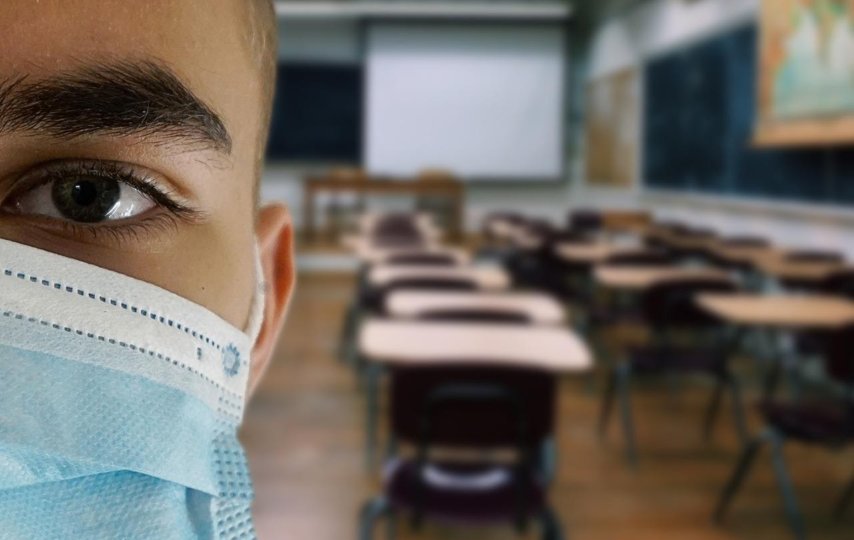It’s no news that COVID-19 has put a halt to all travel plans in 2020, but its impact on higher education is far more worrying. Have you been robbed of an opportunity to study in the US because of the change in immigration policies?
Thousands of students have been affected, especially across Asia. With travel restrictions and immigration policies at their strictest, the picture seems bleak for students looking to enroll in foreign universities.
So, where does that leave the students in India comprised of 18.4% of the US foreign student population?
With universities not looking like they will open anytime soon and many of them not even accepting applications, what is the way ahead?
Let’s discuss the impact of coronavirus on higher education and find out the best way forward.
Effects of coronavirus on Higher Education
- A severe hit to chances of studying in foreign institutes
India has steadily improved its higher education system, with nearly 37.4 million students enrolled in the higher education system as of 2018-19. But that doesn’t take India to even in the Top 20 in best education systems in the world.
That is why India is the world’s second-largest source of immigrant students, with as many as 7,50,000 students studying abroad in 2018. That number is bound to get severely affected due to the coronavirus outbreak. BBA admissions for immigrants will also see a decline in foreign institutes like Harvard
Countries with top education systems like the US and the UK have already started to employ strict measures to control international students’ intake. It’s perhaps a necessary measure, at least until the pandemic slows down.
That has put a severe dent in the plans of students looking to go abroad for an MBA after completing their B.Com program, B.Tech Computer Science, and so on.
- Digital Divide
Students who had bagged admissions in renowned domestic institutes also have a severe problem at hand. As much as internet access has risen over the past couple of years, nearly 50% of the Indian population still doesn’t have access to it.
But that is just one part of the problem. Even those with internet access don’t have smooth networks to attend online video classes. It becomes a tricky proposition for students who have already submitted their b com fees or enrolled in other programs but lack the technology to attend classes.
So, where does that leave the students looking to take the higher education route before getting a job? Well, with job availability at all-time low such students have hit a temporary roadblock.
- Higher education institutes receive a severe blow to their income.
With the loss of international students and uncertainty over the fee they can charge for online classes, higher education’s income is bound to decline.
Some students might choose to wait until next year to enroll in a higher education programme after BBA LLB or B Tech engineering leaving more top education systems suffering heavy losses.
That will have a direct impact on the job security of faculty members working in these institutes.
- Practical courses will be affected.
Institutes can’t fulfill the course requirements of practical courses like M Tech after B Tech computer science or Mechanical. Similarly, possible exposure is crucial in Masters degrees in the Medical field.
That has brought up a stiff challenge in front of institutes. It’s something they have never experienced before, and visual stimulation probably won’t be enough for expert-level technical courses. The practice of visual stimulation methods can work courses after B.Com Programme and BBA LLB, though.
What is the way ahead?
- Virtual Courses
Harvard has launched its online MBA program, which is cost-effective and inviting similar enrolments to BBA admissions.
A lot of other foreign and domestic institutes offer virtual courses that are presenting similar value to B Tech engineering students as the offline programs.
Yes, it’s not going to be perfect yet, but it’s good to be a part of the change amidst a pandemic that threatens to change the whole dynamic of the education system, amidst an epidemic.
- Opportunity for Indian Institutes to invite foreign students
With a large number of students left scrolling through online courses and degrees, it’s an excellent opportunity for Indian Institutes to tap into this market.
The customisation of online programs to fulfill the modern needs of the industry is a crucial first step towards it. Blending liberal arts or data science subjects to technology and business programs can make for viable job-oriented courses.
That requires a good bit of marketing research which new age institutes like BML Munjal have started employing to good effect. The fee for expensive programs has also come down to as low as a B.Com fee, which makes online courses a blessing in disguise, for the middle class.
Hence you should consider opting for the virtual courses, as the norm is this year, even if that means sacrificing your US study goals.













